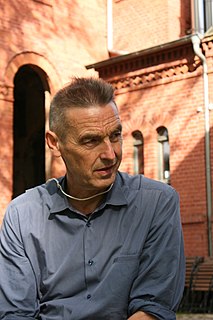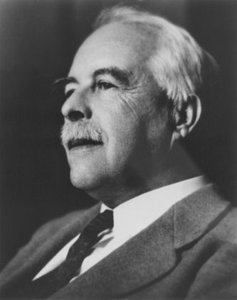A Quote by Jurgen Habermas
[Critical social science attempts] to determine when theoretical statements grasp invariant regularities of social action as such and when they express ideologically frozen relations of dependence that can in principle be transformed.
Related Quotes
When man faces man the one attempts to put the other to sleep and the other continuously wants to maintain his uprightness. But this is, to speak in the Goethean sense, the archetypal phenomenon of social science. This sleeping-into we may call the social principle, the social impulse of the new era: we have to live over into the other; we have to dissolve with our soul into the other.
Medicine is a social science, and politics is nothing else but medicine on a large scale. Medicine, as a social science, as the science of human beings, has the obligation to point out problems and to attempt their theoretical solution: the politician, the practical anthropologist, must find the means for their actual solution. The physicians are the natural attorneys of the poor, and social problems fall to a large extent within their jurisdiction.
For one to be free there must be at least two. Freedom signifies a social relation, an asymmetry of social conditions: essentially it implies social difference--it presumes and implies the presence of social division. Some can be free only in so far as there is a form of dependence they can aspire to escape.
In some central and important cases, ... the existence of specific power relations in the society will produce an appearance of a particular kind. Certain features of the society that are merely local and contingent, and maintained in existence only by the continual exercise of power, will come to seem as if they were universal, necessary, invariant, or natural features of all forms of human social life, or as if they arose spontaneously and uncoercedly by free human action.
I think it is now time for social scientists to step out of the shadow and to establish an advanced social sciences methodology that integrates science (third-person view) social transformation (second-person view) and the evolution of self (first-person view) into a coherent framework of consciousness-based action research
It is time to create new social science departments that reflect the breadth and complexity of the problems we face as well as the novelty of 21st-century science. These would include departments of biosocial science, network science, neuroeconomics, behavioral genetics and computational social science.
[The] first postulate of the Principle of Uniformity, namely, that the laws of nature are invariant with time, is not peculiar to that principle or to geology, but is a common denominator of all science. In fact, instead of being an assumption or an ad hoc hypothesis, it is simply a succinct summation of the totality of all experimental and observational evidence.
I'm going to proportion more time to organizing and taking action and less time to passively consuming news that is dispiriting me. Part of this will be to get off social media. I know social media is just a tool, but we've been using it in a way that has transformed us from a nation into an audience, passively spectating our own ruin.
What we have to ask is this: what can we morally expect of and allow to people whom we deploy to fulfill this or that social role :police officer, school teacher, physician? This may sometimes lead to difficult social decisions - e.g. should police be permitted to illegally import drugs as part of a sting operation? In the end, I think "common - that is, critical - morality" should determine the limits of the police role.
Under the notion that unregulated market-driven values and relations should shape every domain of human life, the business model of governance has eviscerated any viable notion of social responsibility while furthering the criminalization of social problems and cutbacks in basic social services, especially for the poor, young people and the elderly.









































